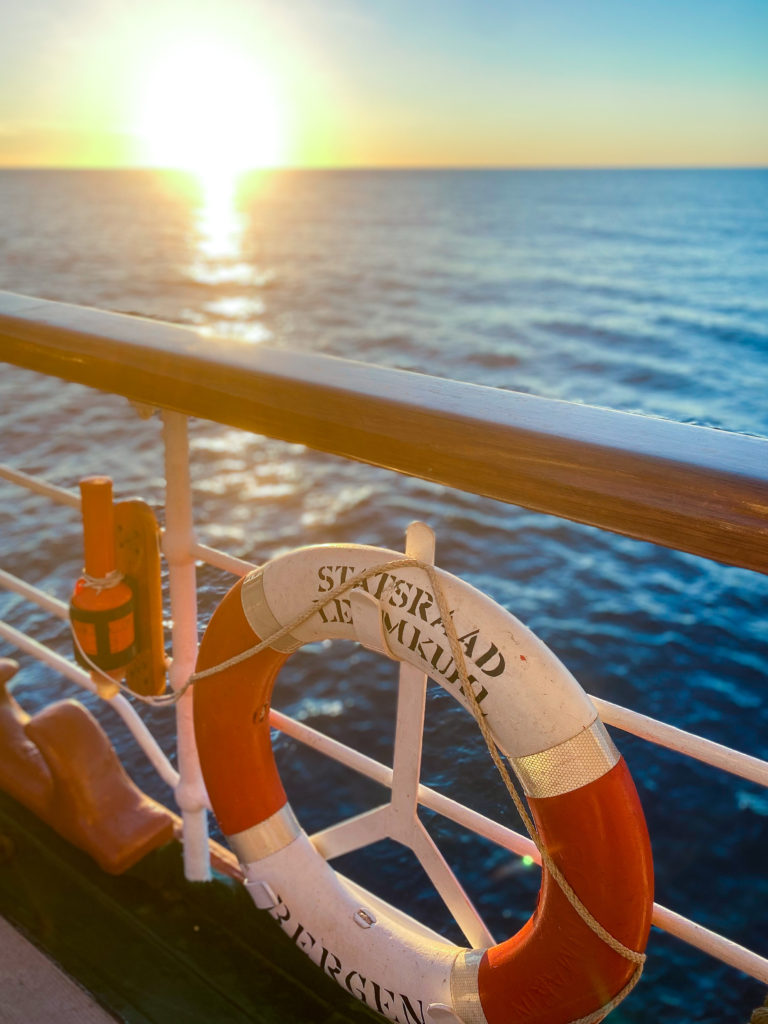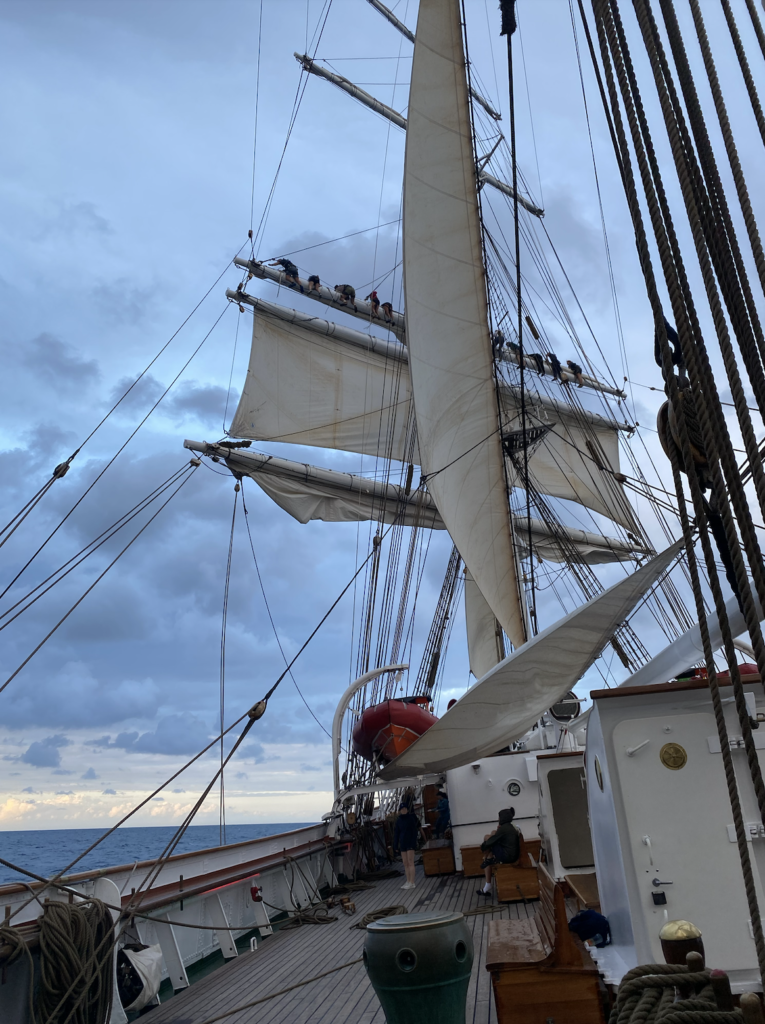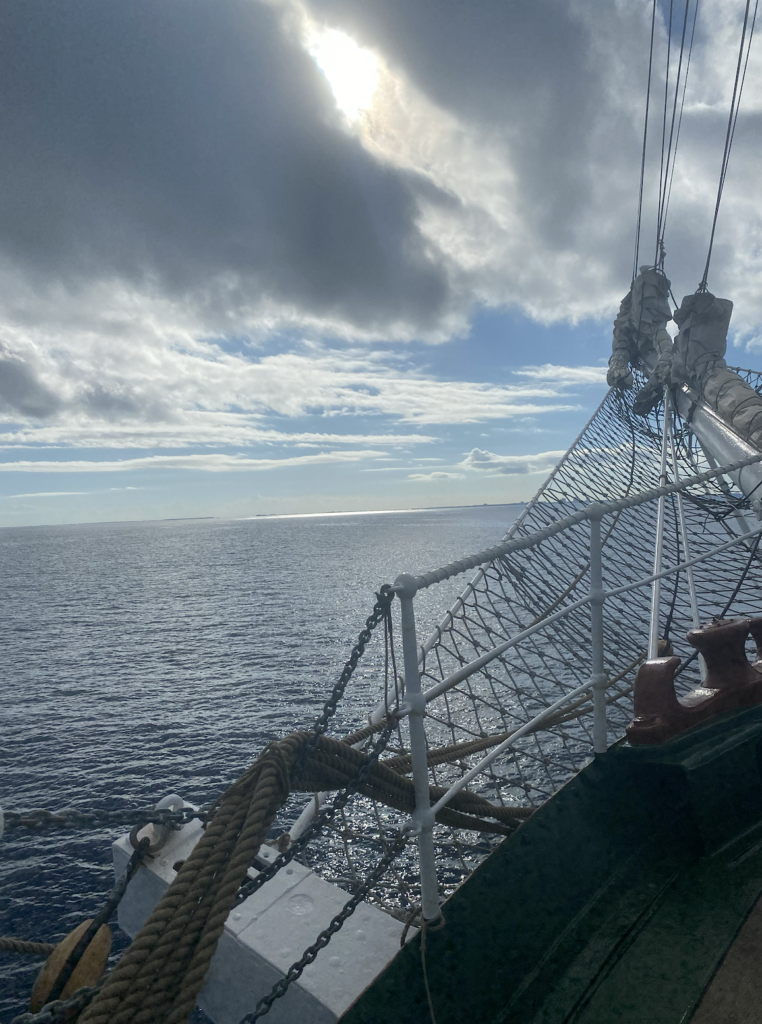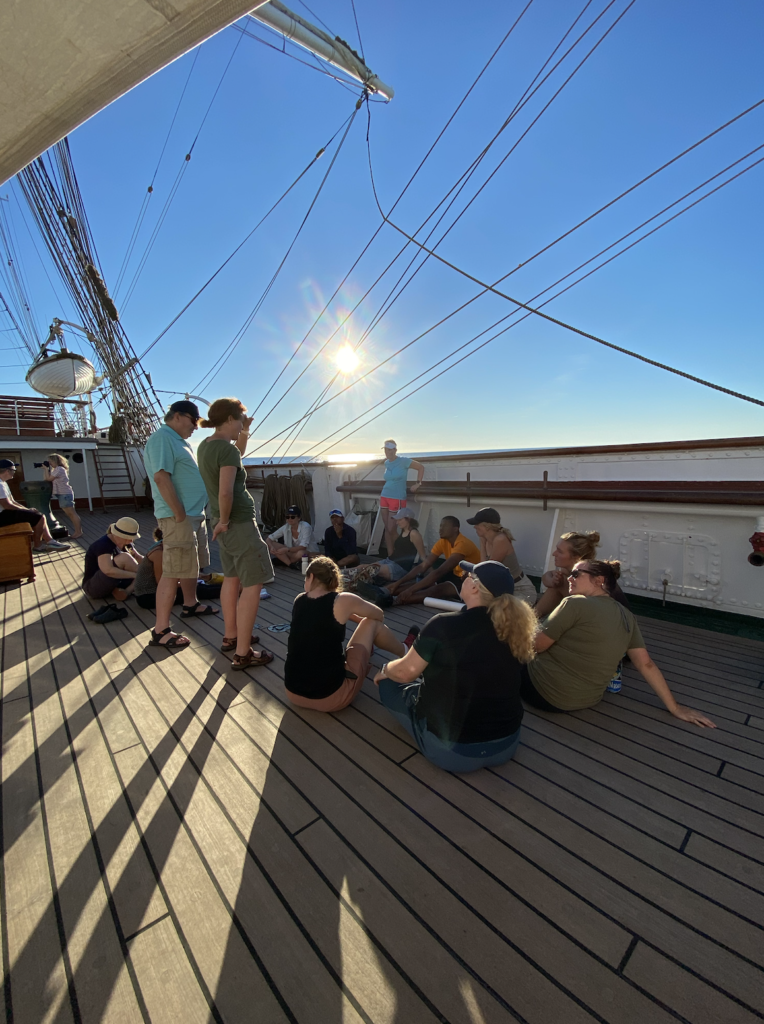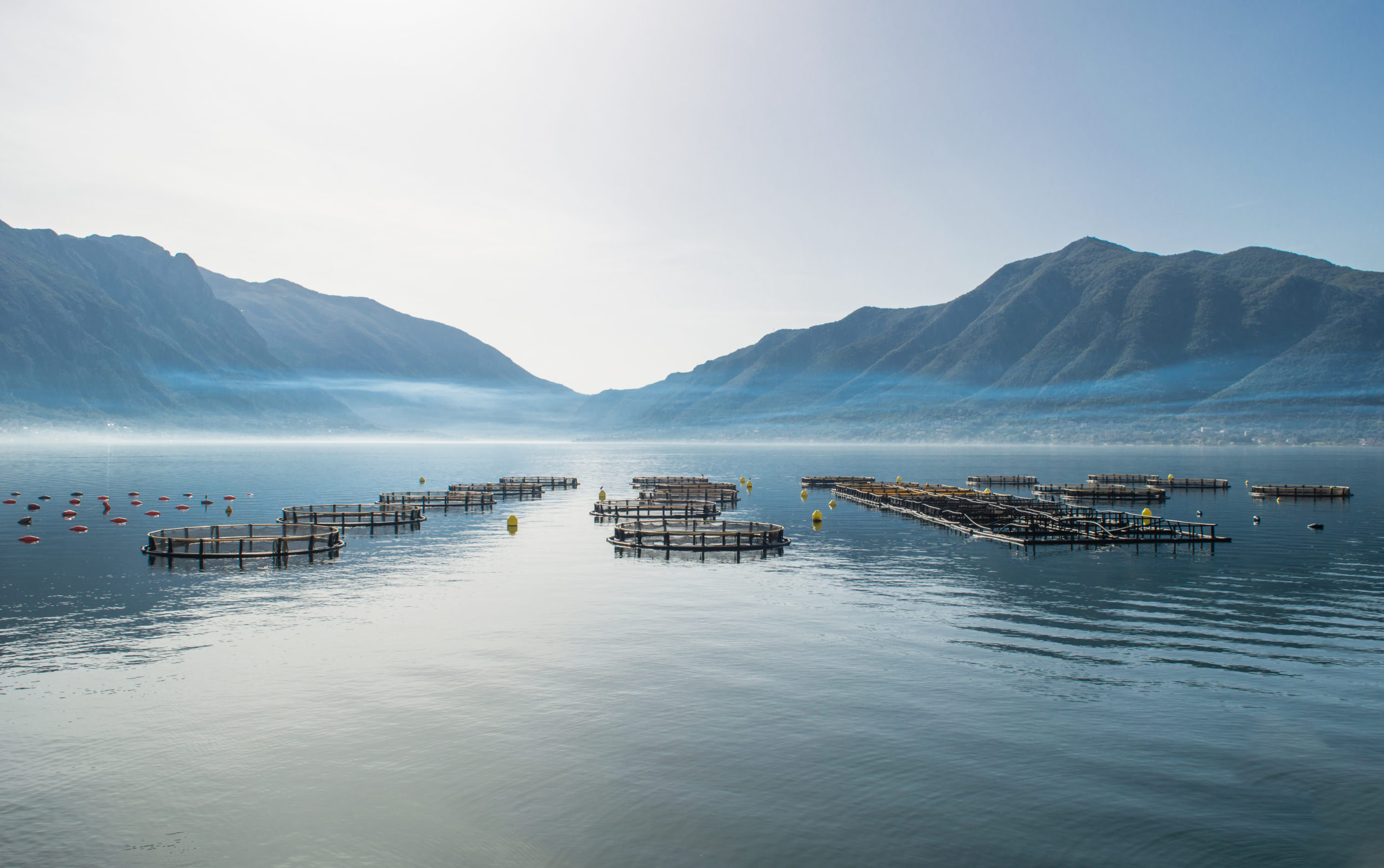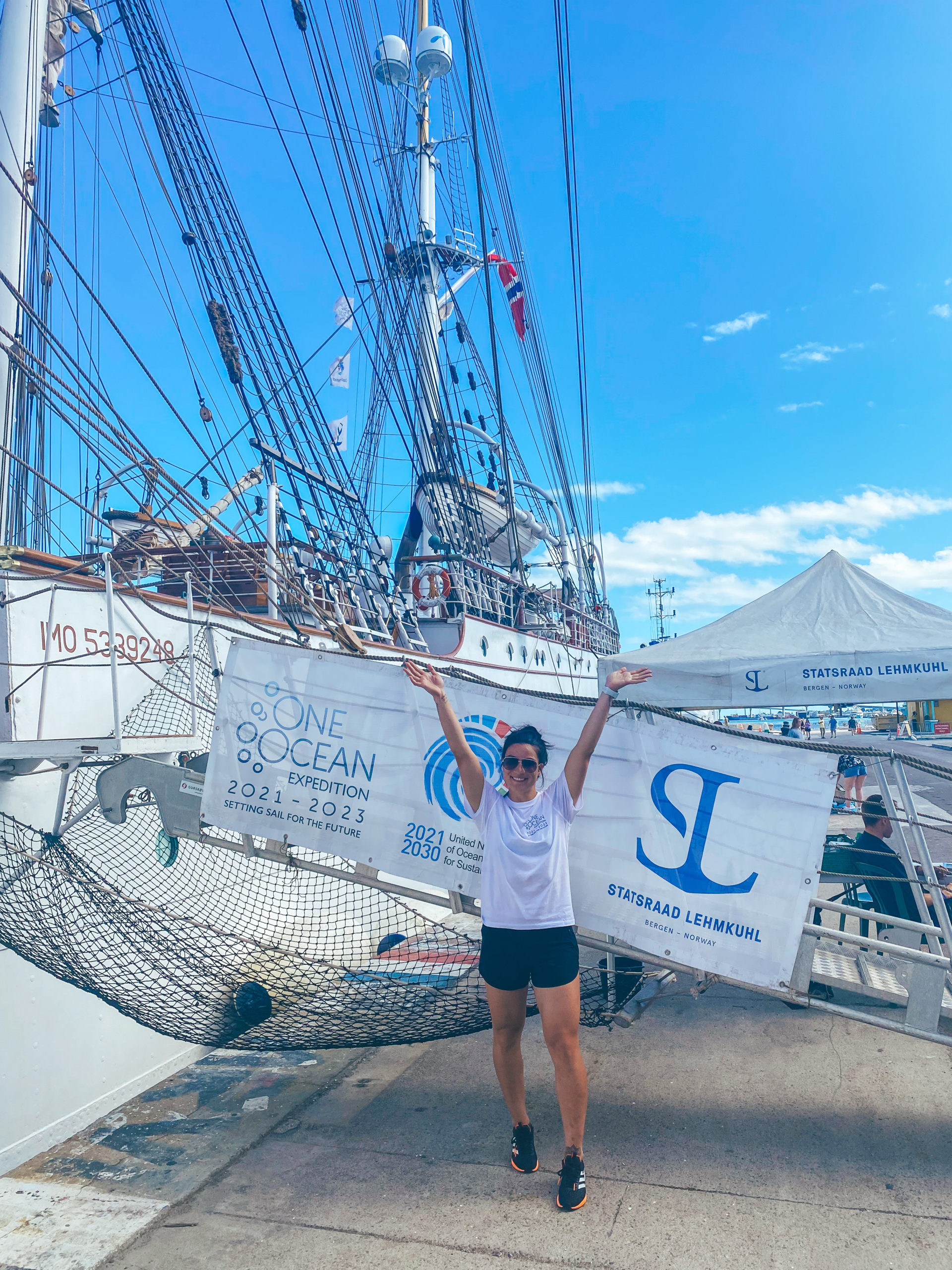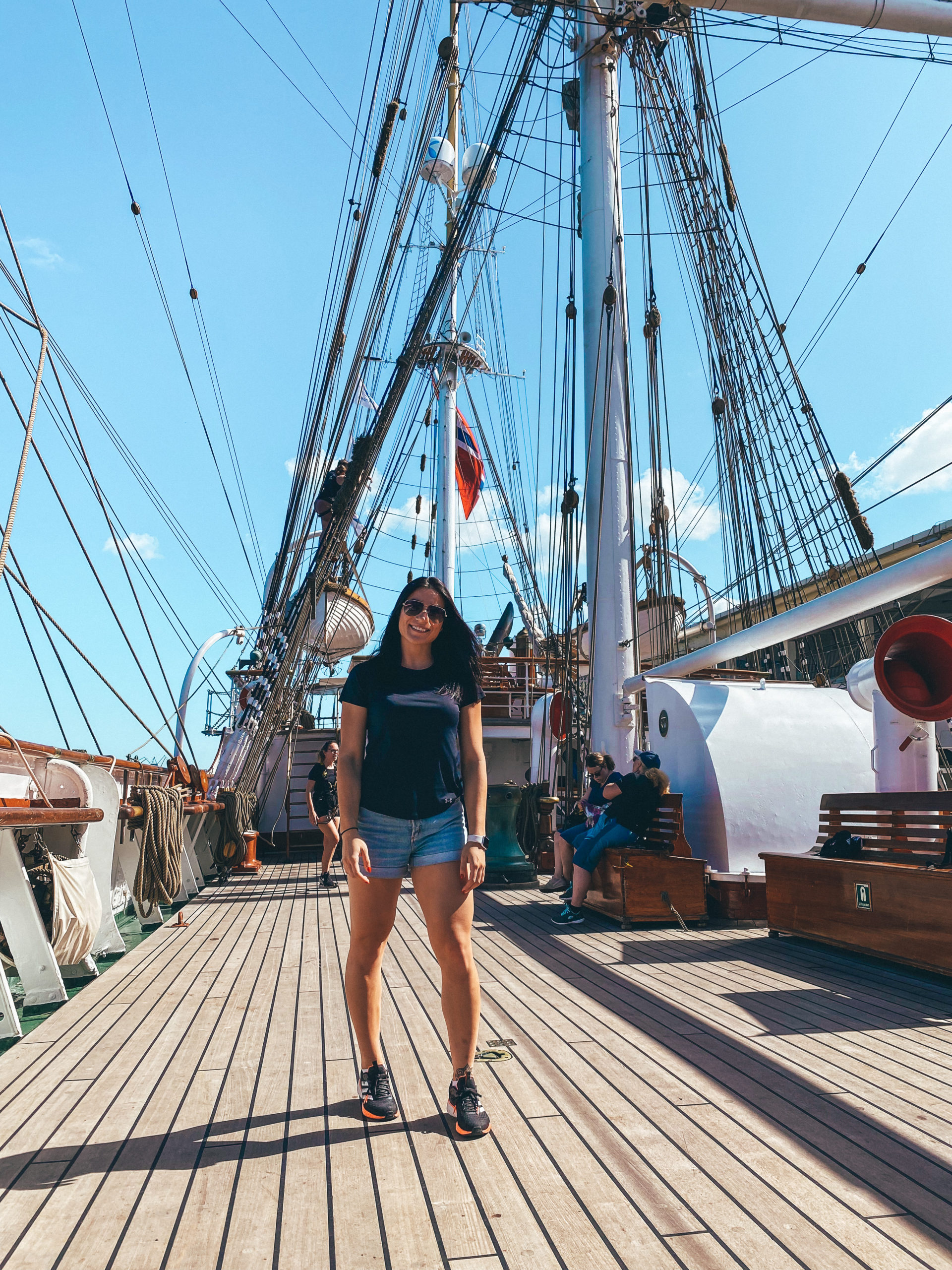
The One Ocean Expedition has Arrived in Nassau
The One Ocean Expedition has finally arrived in Nassau, Bahamas!
We successfully travelled more than 500 nautical miles from La Habana, Cuba, most of it under sail, to get here.
It’s been difficult to find the words to explain the last few days. This has truly been a once in a lifetime experience, unlike anything I’ve ever done before. At times it’s been overwhelming; I doubted my abilities on the first few days on the ship, but I slowly got accustomed to the routine of sailing. There has never been a dull moment aboard the Statraad Lehmkuhl and I am constantly learning.
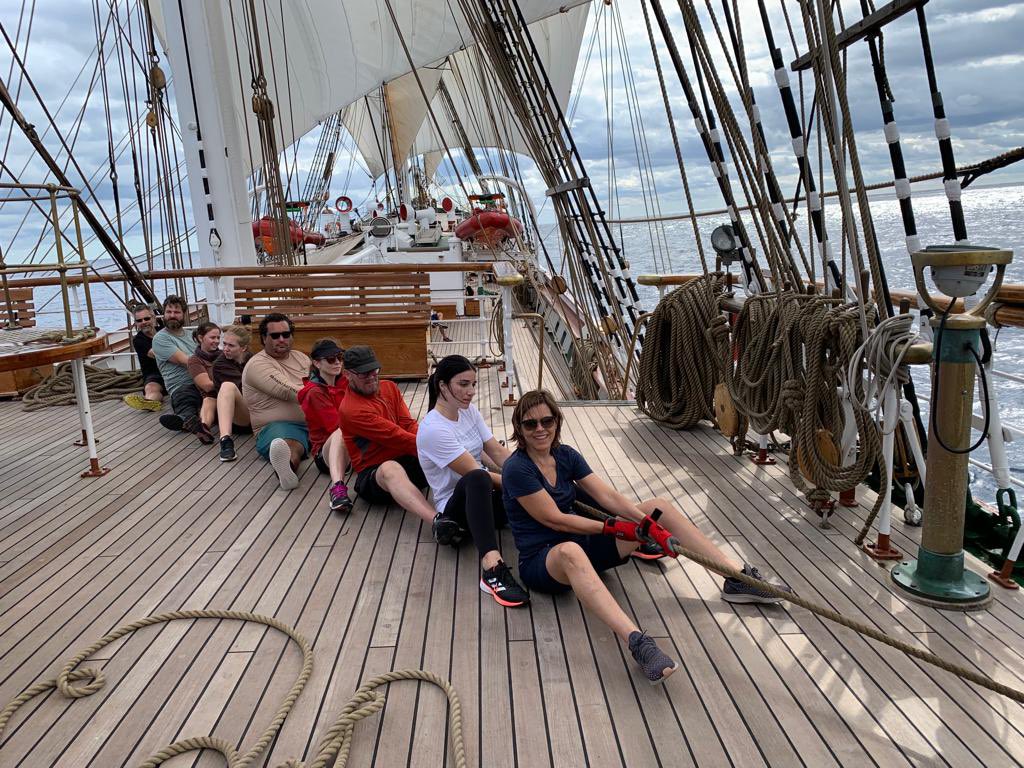
I have been hearing so many great insights from experts who work in the aquaculture industry, scientists who work in novel feed development, students exploring the potential of low trophic aquaculture to improve food systems, and industry veterans sharing decades of experience from finding farming around the world.
On our journey from Cuba to Bahamas, my team was working on a case study exploring aquaculture development of two species, cobia and tilapia, in Cuba. With such an interdisciplinary team, we were able to identify different barriers and opportunities for aquaculture development in the country that might have otherwise gone unnoticed without so many people from diverse backgrounds.
We chatted about the increased food security that increasing tilapia production could bring to Cuban people and the economic opportunities expanding cobia aquaculture would bring to the sector. We examined this case study from all angles considering the feed costs of each species, the available space in Cuba for the development of aquaculture, the local knowledge of and demand for tilapia, and the political constraints of exporting. It was truly an interdisciplinary exercise. I felt like a sponge, just eager to soak everything up.
I am also learning a lot about teamwork and collaboration, both in sailing and in ocean science. Sailing is not easy, as I’ve quickly realized. It really does require a team of people working in sync to effectively sail and keep a tall ship on course – similar to the ways we need everyone working in sync to keep ocean health on course! 😉
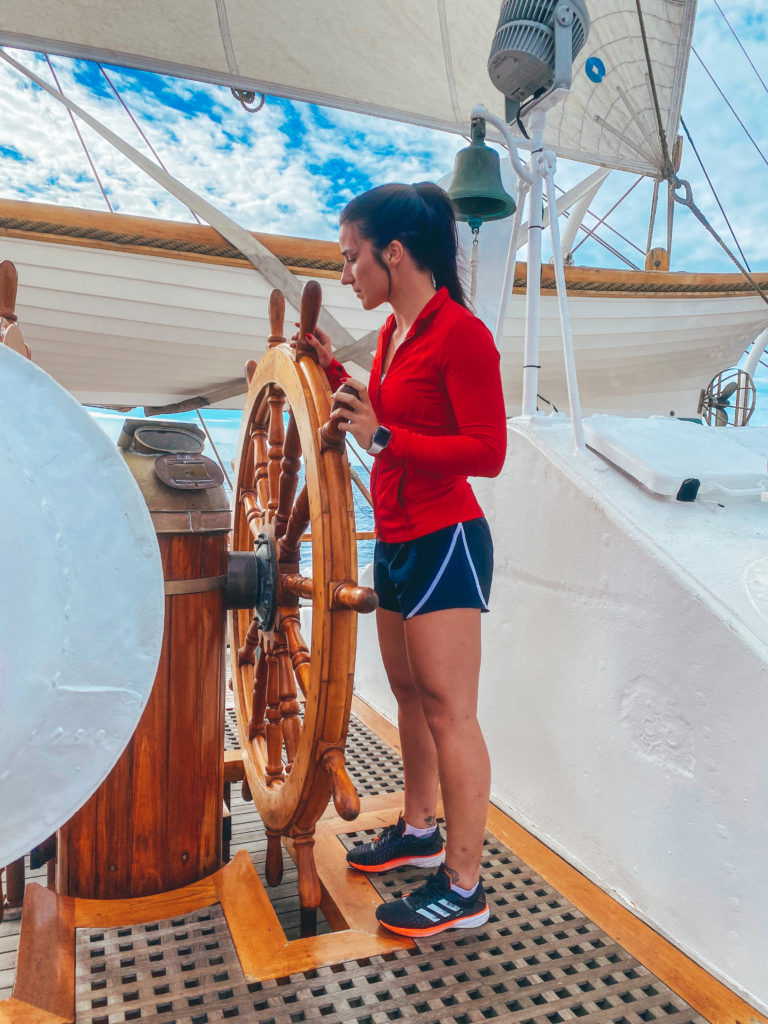
I’ve also been keeping daily diary entries while at sea, so if you want a closer look inside the day to day aboard the Statsraad Lehmkuhl, check out some brief diary entries below.
Emily’s Onboard Diary
Sunday November 28 – Departing Havana
My journey with the One Ocean Expedition has officially begun.
And I am really wondering what I’ve gotten myself into. Boarding the ship has been a little bit overwhelming. I have never sailed before, or done anything like this, really. It’s all so new to me, I feel a bit like a fish out of water.
Thankfully, everyone is very friendly. I think they can probably tell I do not have the hardened outdoorsy personality that all the Norwegian’s seem to have. Many have gone out of their way to get me better acquainted with life on the ship, giving me a grand tour of the decks and explaining to me how the watch shifts work.
This will definitely be tough, but I am up for the challenge.
Monday November 29 – at sea
I slept surprisingly well. I was apprehensive about the hammocks, but they were much more comfortable than I expected them to be! I expected the swaying of the hammock with the waves to make me seasick, but it was more comforting than naseauting. I think it rocked me right to sleep!
I was so exhausted after our watch shift that I must’ve fallen asleep as soon as I got into the hammock. Like I said, sailing is not easy!
Today I got to try helmswatch. This is an important watch position because you are literally responsible for steering the ship and keeping it on course! I was so nervous when I first got to post. I thought the crew was crazy for thinking that I, a city girl with no sailing experience, could steer the ship! But with some careful coaching from the crew, I quickly got over my self-doubt and found myself getting comfortable with helmswatch very quickly.
Today, we also had a really thought provoking discussion in our group about aquaculture development and the future of blue foods. I really love these types of unstructured conversations – “food for thought” if you will. It gives everyone a chance to give their opinions, debate, discuss, and most importantly, learn.
I was really struck today by one comment regarding the responsibility of aquaculture to feed the world. Someone challenges the conversation we were having about aquaculture for food security by asking, “How come when we talk about aquaculture it always has to be in the sense of feeding the world or solving food insecurity, why can’t we just talk about aquaculture as a method of food production?”
I’ve been thinking a lot about this. It is quite interesting how seafood seems to always be held to a higher standard. I see it all the time in my work with traceability – consumers are always wanting to know where their fish came from but never stop to question where their meat or produce comes from.
Of course, it’s good to be a leader and have lofty aspirations, but it is something to think about.
Tuesday November 30 – at sea
The weather today was perfect. It was sunny and warm, but with a breeze so we weren’t sweating while doing our watch shifts. Which was super appreciated today as we had a crazy morning watch shift pulling roles and changing sails.
I find myself getting more accustomed to boat life. I think the initial shock of everything is wearing off. Which is great because now that my head is clear, I can learn so much more from the people around me.
Today I was having a conversation with some folks about the public reception to aquaculture development and how on Canada’s west coast, it’s such a polarizing issue, but in other parts of the world, it’s not. “Why is that?” someone had asked me. It’s a hard question to answer, I realized.
Some of the pushback against aquaculture development in Canada comes from Indigneous communities, who have been treated very poorly by the Canadian government for a very long time. This certainly has contributed to the mistrust and hostility around ocean use and development in BC.
I think generally aquaculture has an image problem. People are weird creatures, they tend to recall the bad things quite easily. I think years of exaggerated headlines about how “horrible” aquaculture is has led many people to just assume it’s always been this way and it will always be this way. It’s a bit frustrating. Aquaculture has had its issues in the past, now doubt about it. But I can see that the industry has put in the work, the time and financial investments, to improve its technology and farming practices to address those issues.
This is one of the reasons why I was so excited to work with Mowi on this project. I want to help to show people that the aquaculture industry is more than those click-bait headlines from decades ago. Rather, this is an innovative and sustainable food production that we should embrace.
It might be a bit of an uphill battle, but just like I was up for the sailing challenge, I’m up for this challenge.
Wednesday December 1 – at sea
Today, I am fairly certain I’ve cured my sea sicknesses. I’ve stopped taking medication and I feel great. I think I’m officially acclimatized to life on the water!
Nothing else new to report. I am physically exhausted from the sailing work but mentally energized from the great conversations I’ve been having.
I’m having more fun than I expected!
Thursday December 2 – arriving in Nassau
We’ve made it to Nassau!
I’m looking forward to reconnecting with the outside world for a few days and getting some work done. We’ll be here for only three days – hopefully enough time to work on my tan – before we set sail for Miami.
